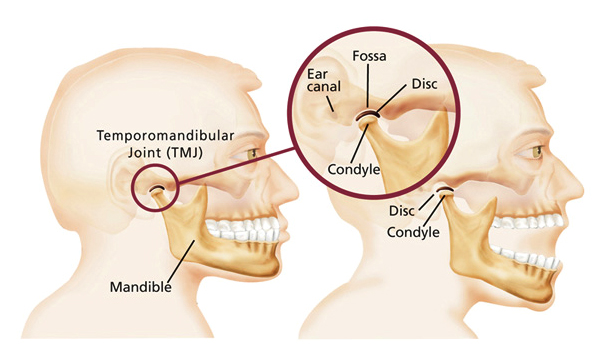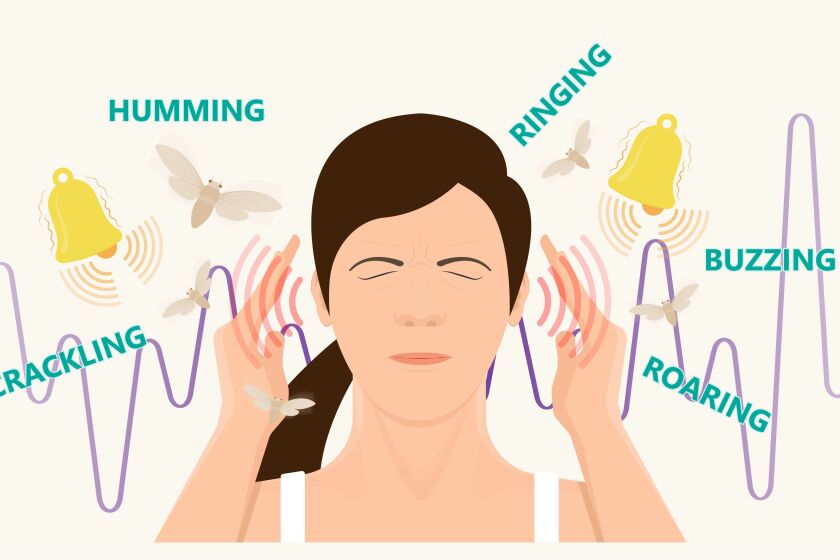The relationship between wisdom teeth and tinnitus is a topic that has piqued the interest of both dental professionals and patients alike. On the surface, both seems world apart. Many think the two may be related, while others claim that there is no connection at all, and that tinnitus is a symptom of other underlying non-dental problems.
While there is currently no scientific evidence to support the claim that wisdom teeth causes tinnitus, many dental professionals have suggested a possible relationship. One theory posits that the wisdom teeth may press on the surrounding nerves, putting pressure on the inner ear and causing tinnitus. Another hypothesis for a relation between wisdom teeth and tinnitus is that the sound is simply caused by the grinding of the teeth.
Ongoing issues with temporomandibular joint (TMJ), the joint that connects the jawbone to the skull, is also widely claimed to be the cause of tinnitus. TMJ can be caused by a variety of conditions including bruxism (grinding or clenching of the teeth), arthritis of the joint, and trauma to the area.
However, Murray Grossan, an otolaryngologist and expert in the treatment of TMJ discomfort and tinnitus, have concluded that an impacted wisdom teeth does not cause tinnitus.
So, could your wisdom teeth actually be the culprits behind that annoying ear buzz? Let’s find out more in this detailed article that explores the possible relationship between the wisdom teeth and tinnitus.
Understanding Tinnitus
Tinnitus is a condition characterized by the perception of noise, such as ringing or buzzing, in the ears when there is no corresponding external sound source. The noise, which can also include hissing and whistling, vary in loudness, pitch and duration; some also hear it in either or both of the ear.
There are mainly two types of tinnitus, subjective tinnitus and objective tinnitus. The former is the most common form and is only audible to the person experiencing it. The latter can only be heard and diagnosed by an examining physician. It is usually related to vascular or muscular issues.
Tinnitus can be caused by a myriad of factors including:
- Exposure to loud noises for a prolonged period
- Infection in the middle ear
- Build-up of earwax
- Hearing loss due to old age
- Temporomandibular joint (TMJ) disorder
- Meniere’s disease, a disorder of the inner ear that causes vertigo
- Side effects from mediciation
- High or low blood pressure
Understanding TMJ Disorder
Temporomandibular Joint (TMJ) is a complex anatomical structure that serves as the hinge connecting your jawbone to your skull. Located on either side of your head, right in front of each ear, the TMJ plays a pivotal role in basic yet essential activities such as talking, chewing, and swallowing.
The intricate design, which involves bones, cartilage, ligaments, and muscles, allows for a broad range of motion, making it one of the most versatile joints in the human body. However, when this complex system becomes disrupted, TMJ disorder arises.

There are generally three categories into which TMJ disorders fall:
- Muscular Disorders: This involves discomfort or pain in the muscles controlling jaw function.
- Joint-Derived Disorders: Here, the issue lies within the joint itself, often involving a displaced disc, dislocated jaw, or injury to the condyle.
- Degenerative Disorders: These are conditions like osteoarthritis or rheumatoid arthritis that affect the temporomandibular joint.
There numerous symptoms that one experiences with TMJ disorder. it includes jaw pain, difficulty or discomfort while chewing, popping or clicking sound in the jaw joint, limited jaw movement, and ear pain.
Diagnosing TMJ disorders generally involves a combination of patient history, physical examination, and imaging tests like X-rays, MRI, or CT scans. But how does TMJ disorder relate to the wisdom teeth and tinnitus?
Triangular Relationship Between TMJ, Wisdom Teeth, and Tinnitus
Today, tinnitus affects approximately 50 million adults in the U.S., equivalent to 25% of the country’s adult population. For most cases, tinnitus is nothing more than mere annoyance and is dealt with by simply getting used to it. In severe cases, tinnitus becomes a debilitating condition that can lead to sleeping difficulty, and depression.
So how are the three related? Quite a bit, actually. TMJ disorders can result in symptoms that extend beyond jaw pain or difficulty chewing. In many cases, individuals suffering from TMJ disorder experience tinnitus in one form or another. This is because problems with this joint can often lead to a cascading effect on the surrounding structures including the ears. Here are some theories:
- TMJ disorders could lead to muscle tension and constriction around the ear, impacting auditory pathways.
- The disc within the TMJ is directly connected to the malleus, a bone in the middle ear, providing a physical link between TMJ function and auditory perception.
- TMJ disorders can result in inflammation, which may affect the Eustachian tube and inner ear, both key players in the experience of tinnitus.
If your wisdom teeth are causing a TMJ disorder—either through direct pressure or by making you alter your bite—there’s a chance they could indirectly contribute to tinnitus. There are different ways a wisdom teeth can impact the TMJ:
- Impacted wisdom teeth can cause localized pain that radiates to the TMJ.
- Erupted wisdom teeth that are misaligned can lead to an uneven bite, placing undue stress on the TMJ.
- Infections around a wisdom tooth can spread, causing inflammation that affects the TMJ.
You may be interested in: Headache After Wisdom Teeth Removal: Causes, Treatments, and Prevention
This leads to a triangular relationship where the wisdom teeth indirectly leads to tinnitus through their impact on the TMJ:
- Wisdom teeth problems (like impaction or infection) could cause or exacerbate TMJ disorders.
- TMJ disorders, in turn, may contribute to the symptoms of tinnitus.
- Therefore, it is conceivable that wisdom teeth could have an indirect role in the onset or exacerbation of tinnitus.
Many have reported experiencing tinnitus after their wisdom teeth are removed. An explanation for the development of tinnitus is the bruising of the area which puts pressure on a nerve. Another possible reason is tension in the neck musculature; this form of tinnitus is also known as “somatic tinnitus”. That said, in most cases, the condition subsided after a few days and posed no further problem.
Treating Tinnitus
Treating tinnitus is often a multifaceted endeavor that aims to address the underlying cause and alleviate the symptoms. However, it’s essential to note that what works for one individual may not be effective for another
Some of the methods include:
- The use of hearing aids or devices to deliver a pleasant sound and mask the sound caused by tinnitus
- Cognitive Behavioral Therapy (CBT) or relaxation techniques such as meditation to help individuals manage the emotional and psychological impact of chronic tinnitus. It doesn’t eliminate the sound but can make it less bothersome.
- Counselling to help patients better cope with tinnitus
- Physical therapy or surgery if the condition is caused by dental-related problems or TMJ
- Alternative treatments such as acupuncture and hypnosis
Ongoing research is exploring various avenues for tinnitus treatment, including targeted neuromodulation and even gene therapy. However, these are still undergoing clinical research and not yet widely available to the public.
Given the multiple avenues for treatment, it’s vital to consult a dental or healthcare professional for a detailed diagnosis of your tinnitus in order to deliver a tailored approach that targets the cause of the condition.
Closing Thoughts
The intricate relationship between wisdom teeth, Temporomandibular Joint (TMJ) disorders, and tinnitus has been explored in this article.
So, can wisdom teeth cause tinnitus? The answer is nuanced. While there’s no direct, conclusive evidence to say that wisdom teeth alone can cause tinnitus, the potential for a triangular relationship through the TMJ is certainly intriguing.
For those experiencing symptoms of tinnitus—whether it’s an annoying ring in the ears or discomfort in the jaw—it’s advisable to approach a professional for a comprehensive evaluation in order to identify and address the root of the problem.







